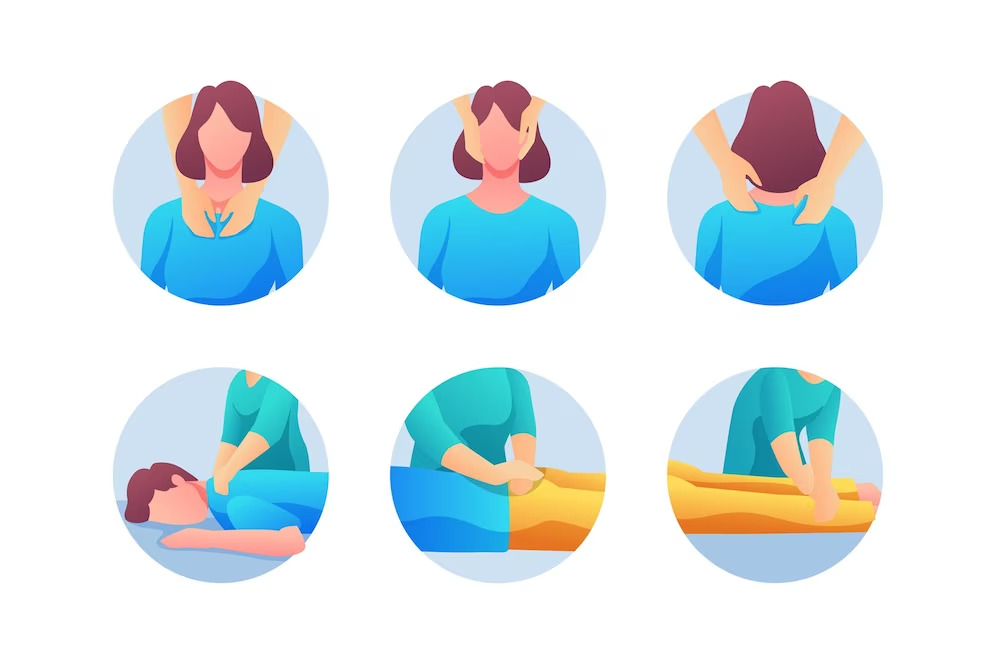Table of Contents
Introduction
Acupressure therapy is a holistic healing technique involving the application of pressure to specific points in the body. This practice promotes relaxation, relieves pain, and enhances overall well-being. Unlike acupuncture, acupressure does not use needles. Instead, therapists use their fingers, palms, elbows, or special tools to stimulate these points, aiding clients in achieving balance in their body’s energy flow.
Eligibility Criteria
Educational Requirements
Educational Requirements: To pursue a career in acupressure therapy after completing your 10th grade, you must meet specific educational requirements. Most institutions offering acupressure courses require at least a 10+2 qualification. However, some programs may admit students with a 10th-grade education as well.
Age Limit
Age Limit: There is typically no age restriction for pursuing a career in this field. Individuals of all age groups can choose this path, making it an inclusive and accessible profession.
Choosing the Right Subjects
Selecting the right subjects after your 10th grade is crucial to preparing for this career. While there is no specific mandate for subjects, opting for a science stream with biology can be advantageous. Biology provides a fundamental understanding of the human body, which is invaluable for therapists.
Pursuing a Relevant Course
After completing your 10th grade and selecting appropriate subjects, the next step is enrolling in a recognized course in acupressure therapy. Look for institutions that offer comprehensive programs in alternative medicine, including acupressure. These courses typically range from 1 year to 3 years, depending on the level of certification you wish to achieve.
Acquiring Practical Skills
Acupressure therapy is a hands-on practice. During your course, you will learn various techniques and pressure points. It’s essential to practice regularly and hone your skills to become proficient.
Joining an Accredited Institution
Ensure that the institution you choose is accredited and recognized by relevant authorities. Accredited institutions provide quality education and often have tie-ups with clinics and hospitals for practical training.
Internship and Hands-on Experience
Many acupressure therapy courses include an internship or practical training component. This hands-on experience is invaluable as it allows you to apply your knowledge in real-life situations and gain confidence in your abilities.
Certification and Licensing
After completing your course and internship, you will need to obtain the necessary certifications and licenses to practice as a therapist. Check the requirements in your region or country, as they may vary.
Continuing Education
The field of therapy is continuously evolving. To stay updated with the latest techniques and advancements, consider pursuing additional courses and workshops throughout your career.
Setting Up Your Practice
Once you’re certified, you can either work independently or join an established wellness center. Setting up your practice involves finding a suitable location, acquiring the necessary equipment, and marketing your services.
Building a Clientele
Building a clientele takes time and effort. Word of mouth, online presence, and excellent service are key factors in attracting and retaining clients.
Networking and Professional Associations
Joining professional associations for therapists can provide networking opportunities, access to resources, and a sense of community within the field.
Career Prospects
Acupressure therapy offers promising career prospects. You can work in wellness centers, hospitals, and spas, or even start your private practice. The demand for alternative therapies is on the rise, making it a viable career choice.
Benefits of Acupressure Therapy
This approach offers several benefits, both for practitioners and clients. It promotes holistic health, stress reduction, and pain relief, making it a fulfilling profession.
Conclusion
Becoming an acupressure therapist after completing your 10th grade is entirely possible with the right education, dedication, and practical experience. It’s a career that allows you to make a positive impact on people’s lives while pursuing your passion for alternative medicine.
FAQs
- Is there an age limit for pursuing a career in acupressure therapy?
- No, there is typically no age limit. People of all ages can become therapists.
- What subjects should I choose after the 10th grade to prepare for acupressure therapy?
- While there is no specific mandate, opting for a science stream with biology can be advantageous.
- How long does it take to become a certified acupressure therapist?
- The duration of the certification program can vary, ranging from 1 year to 3 years, depending on the level of certification you wish to achieve.
- Do I need a license to practice acupressure therapy?
- Licensing requirements may vary by region or country, so it’s essential to check the specific requirements in your area.
- What are the career prospects for acupressure therapists?
- Acupressure therapy offers promising career prospects, with opportunities to work in wellness centers, hospitals, spas, or start a private practice.
For more courses and in-depth information, you can visit our Courses Page and explore other options.
Image by Freepik


Leave a Reply